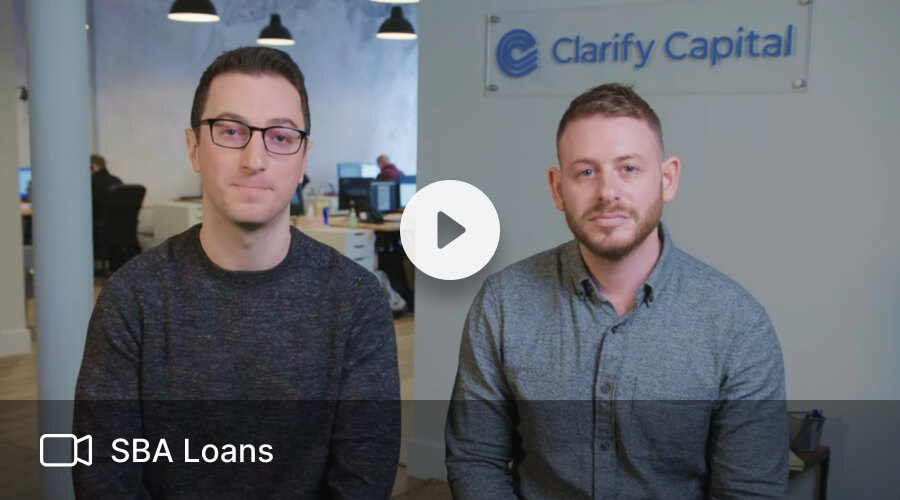An SBA loan is a small business loan backed by the U.S. Small Business Administration (SBA) that gives business owners access to capital with low interest rates, longer repayment terms, and minimal down payments. The SBA doesn't lend directly; instead, it partners with approved SBA lenders and guarantees a portion of the loan to reduce risk.
The most popular SBA loan programs are the SBA 7(a), SBA 504, and Microloan programs. Each type of SBA loan is designed to support different business needs, from working capital and equipment purchases to commercial real estate and refinancing. SBA 7(a) loans allow up to $5 million in funding, while Microloans range from $500 to $50,000.
The main downsides to SBA loans are the amount of paperwork needed and the longer application process than short-term business loans. Clarify Capital helps streamline the SBA process, offering lender match and reducing paperwork, so you can get approved faster.
This guide breaks down the most common SBA loan types, requirements, and benefits to help you understand your options and move forward with funding confidently.
| SBA Loan Comparison | |||||
|---|---|---|---|---|---|
| Loan type | Max loan amount | Interest rate | Term length | Best for | Down payment |
| SBA 7(a) | $5 million | Based on daily prime rate(fixed/variable) | Up to 10 yrs (25 for real estate) | Working capital, real estate, refinancing | 10%–20% |
| SBA Express | $500,000 | Slightly higher than 7(a) | Up to 10 years | Faster approval for general business purposes | Varies |
| SBA Export Express | $500,000 | Competitive | Up to 7 years | Businesses involved in exports | Varies |
| SBA 504 | $5 million+ | Fixed rate (based on CDC) | 10–25 years | Commercial real estate, large equipment | 10%–20% |
| SBA Microloan | $50,000 | 8%–13% | Up to 6 years | Startups, underserved communities | No down payment |
Benefits of SBA Loans
While securing an SBA loan is a lengthy process that requires quite a bit of paperwork and time, it's one of the best ways to fund a business or refinance existing debt. The capital you get from an SBA loan can be used for all business purposes, including buying equipment or inventory, refinancing existing debt, or opening a new location.
Low Down Payments
Borrowers typically pay just 10% down, thanks to the SBA's partial guarantee. That's far less than traditional loans, making SBA loans more accessible for small businesses with limited upfront capital.
High Loan Amounts
SBA 7(a) and SBA 504 loan programs offer funding from $5,000 to $5 million, giving business owners flexibility for everything from equipment purchases to business acquisition.
Long Term Lengths
The five- to 25-year loan term lengths offered by SBA loans are usually the longest compared to traditional financing options. The longer repayment terms allow business owners to make monthly payments at a slower pace.
Competitive Interest Rates
APR typically starts near the prime rate and may be fixed or variable. Rates remain attractive for creditworthy borrowers, especially with SBA-guaranteed programs. They can have fixed rates or variable rates. Clarify helps you navigate the approval process to secure the best loan possible.
Versatile Use of Funds
SBA loans can be used for nearly any business purpose: purchasing fixed assets, expanding locations, hiring staff, refinancing existing debt, or building inventory.
Clarify Simplifies the Process
We guide you through the SBA loan application process, from gathering paperwork to matching you with the right SBA lender. Our dedicated advisors help reduce the typical approval timeline.


